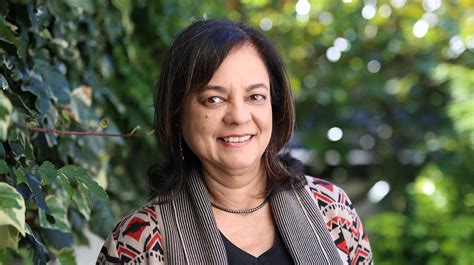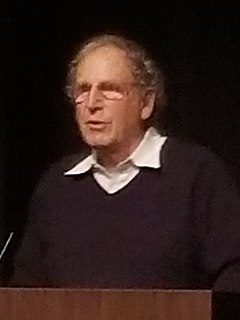A Quote by Virginia Woolf
Let us simmer over our incalculable cauldron, our enthralling confusion, our hotchpotch of impulses, our perpetual miracle - for the soul throws up wonders every second. Movement and change are the essence of our being; rigidity is death; conformity is death; let us say what comes into our heads, repeat ourselves, contradict ourselves, fling out the wildest nonsense, and follow the most fantastic fancies without caring what the world does or thinks or says. For nothing matters except life.
Quote Topics
Being
Caring
Change
Conformity
Confusion
Contradict
Death
Does
Essence
Every
Every Second
Except
Fantastic
Fling
Follow
Heads
Impulses
Let Us
Life
Matters
Miracle
Most
Movement
Nonsense
Nothing
Nothing Matters
Our
Ourselves
Out
Over
Perpetual
Repeat
Rigidity
Say
Says
Second
Simmer
Soul
Thinks
Throws
Up
Us
Wildest
Without
Wonders
World
Related Quotes
It is possible to move through the drama of our lives without believing so earnestly in the character that we play. That we take ourselves so seriously, that we are so absurdly important in our own minds, is a problem for us. We feel justified in being annoyed with everything. We feel justified in denigrating ourselves or in feeling that we are more clever than other people. Self-importance hurts us, limiting us to the narrow world of our likes and dislikes. We end up bored to death with ourselves and our world. We end up never satisfied.
We will continue our journey to our destination of peace and education. No one can stop us. We will speak up for our rights and we will bring change to our voice. We believe in the power and the strength of our words. Our words can change the whole world because we are all together, united for the cause of education. And if we want to achieve our goal, then let us empower ourselves with the weapon of knowledge and let us shield ourselves with unity and togetherness.
When we feel we are powerless our ego most wants to change the things in our world. As we realize we have the power to change our reality the maturity that comes with that understanding changes us, and we find ourselves in acceptance of what is with less desire of feeling our need to change the world around us.
The only things in which we can be said to have any property are our actions. Our thoughts may be bad, yet produce no poison; they may be good, yet produce no fruit. Our riches may be taken away by misfortune, our reputation by malice, our spirits by calamity, our health by disease, our friends by death. But our actions must follow us beyond the grave; with respect to them alone, we cannot say that we shall carry nothing with us when we die, neither that we shall go naked out of the world.
The body stores the trauma of our lives in muscular rigidity, thereby keeping us stuck in the past. When we release the tension in the body and align ourselves with gravity, we take a new stand in life. This allows us to be at ease with ourselves and in harmony in our relationship to others and to our planet.
We need to be realistic and recognize that there will be times when we won't be sharing our faith out of an overwhelming sense of joy. When that happens, that's a call to look at our own devotional lives. Are we putting our hearts and minds before the Lord and under his cross everyday? Do we remind ourselves continually that we have been ransomed by the death of the Saviour? When we meditate on Christ's death for us, it doesn't mean that we never have struggles in our obedience, but it does help.
Demons frighten us because we set ourselves up to be frightened. We are overly attached to our reputations and possessions. When we love and desire what we should be rejecting, we are in conflict with our true selves. That's when the negative energies catch us and use our weapons against us. Instead of taking up what we have to defend ourselves, we put our swords in the hands of our enemies and make them attack us.
A lost sheep is, for all practical purposes a dead sheep. It is the admission that we are dead in our sins---that we have no power of ourselves either to save ourselves or to convince anyone else that we are worth saving. It is the recognition that our whole life is out of our hands and that if we ever live again, our life will be entirely the gift of some gracious shepherd. God finds us the desert of death (not in the garden of improvement) and in the power of Jesus' resurrection, he puts us on his shoulders rejoicing and brings us home.
We talk to ourselves incessantly about our world. In fact we maintain our world with our internal talk. And whenever we finish talking to ourselves about ourselves and our world, the world is always as it should be. We renew it, we rekindle it with life, we uphold it with our internal talk. Not only that, but we also choose our paths as we talk to ourselves. Thus we repeat the same choices over and over until the day we die, because we keep on repeating the same internal talk over and over until the day we die. A warrior is aware of this and strives to stop his internal talk.
Most people would say they live with an internal angst that they can't always put their finger on. This is because the Internet has changed our very way of being in this world, compelling us to be perpetually "on" - from our cars to our computers, our tablets to our smartphones, our desks to our living rooms or dining tables, our churches to our libraries to our schools.
Rather, it is the opening or the interruption that allows us to experience what is hidden, and to accept with our hearts our given situation. When film does this, when it subverts our absorption in the temporal and reveals the depths of our own reality, it opens us to a fuller sense of ourselves and our world. It is alive as a devotional form.
Adversity is a severe instructor, set over us by one who knows us better than we do ourselves, as he loves us better too. He that wrestles with us strengthens our nerves and sharpens our skill. Our antagonist is our helper. This conflict with difficulty makes us acquainted with our object, and compels us to consider it in all its relations. It will not suffer us to be superficial.



































